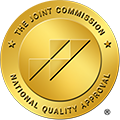At Memphis Detox, we provide compassionate, medically supervised care to help individuals safely manage the withdrawal process. Detoxification, or detox, is the crucial first step in overcoming cocaine addiction, helping to manage cocaine withdrawal symptoms. It helps the body clear the drug, setting the stage for long-term recovery. Understanding the risks of cocaine use and the benefits of a safe detox process is essential for anyone seeking to break free from addiction. Cocaine is a highly addictive drug, and attempting to detox without professional medical supervision can be potentially dangerous.
What is
Cocaine Addiction?
Cocaine addiction is a serious, highly addictive condition that alters the brain’s reward system, driving intense cocaine cravings and compulsive use. It often leads to psychological struggles like anxiety, depression, and mood swings, making it even harder to quit. Beyond personal health, addiction can strain relationships and increase the risk of overdose. Professional treatment is essential to break the cycle and begin the path to recovery. With the right support, a drug-free future is possible.


What is
Cocaine Detox?
Cocaine detox is the process of allowing the body to eliminate cocaine and its toxic byproducts. The main goal is to manage withdrawal symptoms safely and prepare individuals for further addiction treatment. Detox is not a cure for addiction, but it is a necessary first step in the recovery journey.
Proper treatment for cocaine addiction includes not only detox but also a comprehensive treatment program of ongoing therapy and support to ensure long-term recovery.
Cocaine increases levels of dopamine, a neurotransmitter associated with pleasure and reward, in the brain. This surge leads to the drug’s euphoric effects but also disrupts normal brain function. Over time, repeated cocaine use changes the brain’s chemistry, making it difficult to feel pleasure without the drug and leading to intense cravings and severe physical symptoms. Physically, cocaine can cause heart problems, respiratory issues, and neurological complications.
Detox is essential because it addresses the immediate physical dependence on cocaine. Without proper medical supervision during detox, withdrawal symptoms can be overwhelming and may lead to relapse. A supervised detox—like the one offered at Memphis Detox—provides medical support, reduces health risks, and increases the chances of successful long-term recovery. Professional support is essential to detox from cocaine safely and minimize health risks.
Common Symptoms of Cocaine Use
- Impaired judgment (with long-term use)
- Intense drug cravings
- Elevated confidence
- Anxiety
- Paranoia
- Irritability
- Agitation
- Rapid heartbeat
- High blood pressure
- Dilated pupils
- Poor concentration (with long-term use)
- Memory problems (with long-term use)
- Impaired judgment (with long-term use)
- Intense drug cravings
Chronic Cocaine Use
Signs and Symptoms of Cocaine Withdrawal
Physical Symptoms
Cocaine withdrawal is rarely life-threatening, but it can be extremely uncomfortable. Common physical symptoms include:
- Fatigue and exhaustion
- Increased appetite
- Muscle aches and pains
- Chills or tremors
- Restlessness
- Disrupted sleep patterns
Psychological Symptoms
The psychological effects of cocaine withdrawal are often more severe than the physical ones. These may include the need for mental health treatment as part of the comprehensive approach to recovery:
- Intense cravings for cocaine
- Psychological cravings or persistent urges to use cocaine
- Depression and anxiety
- Irritability and mood swings
- Difficulty concentrating
- Vivid, unpleasant dreams
Timeline of Cocaine Withdrawal Symptoms
Withdrawal symptoms typically begin within hours after the last use and can last for days to weeks. The withdrawal timeline generally follows this progression:
Extreme fatigue, depression, and increased sleep are common during this initial period.
Cravings, mood swings, sleep disturbances, and irritability are typical symptoms as the body adjusts.
Lingering cravings and mood issues, gradually decreasing over time.
Some individuals may experience protracted withdrawal symptoms, such as anxiety and depression, that can persist for weeks or months after the acute withdrawal phase.
The withdrawal timeline can vary significantly, and how long cocaine withdrawal lasts depends on individual factors such as the duration and intensity of use, overall health, and support systems.
At Memphis Detox, our team supports you through every stage of withdrawal with care, understanding, and clinical expertise.
Cocaine Detox Process
Medical detox takes place in a supervised setting with healthcare professionals who monitor vital signs and manage symptoms, providing a drug-free environment for recovery. This approach is recommended for most people, especially those with a history of heavy use, co-occurring health conditions, or underlying medical conditions, as these factors increase the risks during withdrawal and require professional care.
At-home detox, while possible, carries significant risks due to the potential for severe psychological symptoms and relapse. Maintaining a healthy diet during at-home detox can support the body’s natural recovery process, but medical supervision is still recommended.
Memphis Detox offers a safe and comfortable environment where our team ensures you don’t have to go through detox alone.
During detox, individuals may undergo a medical assessment to determine their health status and specific needs. Supportive care, such as hydration, nutrition, and medical interventions with medications to ease symptoms, is provided. While there are currently no FDA-approved medications specifically for cocaine detox, certain medications may be used to manage withdrawal symptoms. Emotional support and counseling may also be available to help manage cravings and mood changes.
Medical supervision is crucial during cocaine detox to safely manage withdrawal symptoms and promptly address complications. Healthcare providers may prescribe medications, such as antidepressants or sleep aids, to ease discomfort. Supportive therapies like cognitive-behavioral therapy (CBT) help individuals cope with intense cravings and emotional distress. Professional care significantly reduces health risks and supports a safer, smoother recovery.

Cocaine Addiction Treatment Options After Detox
Inpatient vs. Outpatient Cocaine Detox Programs
After detox, ongoing treatment is essential to address the psychological aspects of addiction. Inpatient programs, also known as residential treatment, provide 24/7 medical supervision and comprehensive care for individuals with severe addiction, ensuring a safe and controlled environment for recovery. This structured setting can be especially beneficial for those with severe addiction or unstable home situations. Outpatient programs provide flexibility, allowing individuals to attend therapy while living at home.
Therapy and Counseling Approaches
Evidence-based therapies, such as CBT, motivational interviewing, contingency management, and group therapy, are effective in treating cocaine addiction. These approaches help individuals identify triggers, develop coping skills, and build motivation for lasting change.
Support Groups and Aftercare
Support groups like Narcotics Anonymous (NA) and Cocaine Anonymous (CA) offer peer support and accountability. Aftercare planning, including ongoing therapy and relapse prevention strategies, is crucial for maintaining sobriety and preventing relapse. Aftercare planning and ongoing support are essential to prevent relapse and maintain long-term sobriety.
At Memphis Detox, we work closely with each client to build a customized aftercare plan that supports long-term success.
Holistic Approach to Cocaine Abuse Recovery

Risks and Dangers of
Quitting Cocaine Cold Turkey
Potential Complications
Quitting cocaine abruptly, or “cold turkey,” can lead to severe psychological symptoms, including depression, anxiety, and suicidal thoughts. The risk of relapse is high, and without medical supervision, individuals may be at risk of overdose if they return to use.
Importance of Medical Supervision
Medical supervision during detox ensures that withdrawal symptoms are managed safely and that any complications are addressed immediately. According to the National Institute on Drug Abuse, unsupervised cocaine detox can pose significant risks and dangers, highlighting the importance of professional oversight. Professional support increases the likelihood of a successful detox and reduces the risk of harm.
Memphis Detox provides around-the-clock care, giving clients the peace of mind that they’re never alone during this vulnerable time.
Frequently Asked Questions (FAQs) About Cocaine Detox
Cocaine detox typically lasts from several days to a few weeks, depending on the individual’s level of use and overall health.
Common symptoms include fatigue, depression, increased appetite, irritability, and intense cravings.
While some people attempt an at-home detox, it is not recommended due to the risk of severe psychological symptoms and relapse. Medical supervision is safer.
Cocaine detox is generally not life-threatening, but the psychological symptoms can be severe. Medical supervision is advised.
Supportive care, medications for specific symptoms, therapy, and a safe environment can help ease withdrawal.
Offer emotional support, encourage professional help, and avoid enabling drug use. Be patient and understanding.
After detox, ongoing treatment such as therapy, support groups, and aftercare planning is essential for long-term recovery.

Take the First Step Toward Healing
If you or a loved one is struggling with cocaine use, Memphis Detox is here to help. Reach out today to learn more about our detox services and how we can support your first step toward recovery.



